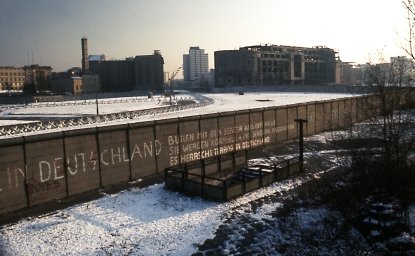East German Documents on Kim Il Sung’s April 1975 Trip to Beijing




Kim Il Sung, Zhou Enlai, and Deng Xiaoping in Beijing in April 1975
Contents
Introduction
The spring of 1975 was a turning point in the Cold War in Asia. Beginning in March, the Vietnam People’s Army launched a series of successful campaigns against South Vietnam, which culminated in the fall of Saigon on April 30. Two weeks earlier, on April 17, the Khmer Rouge had captured the Cambodian capital of Phnom Penh. Although the fall of these two capital cities to revolutionary forces was part of long-term military conflicts in Indochina, these victories came unexpectedly quick. These developments tilted the balance between the communist and liberal camps in Asia in favor of the former. They also strained the prospects for peaceful competition which had been opened by the rapprochement between the United States and the People’s Republic of China in the early 1970s.
In 1975, the atmosphere of détente on the Korean Peninsula was waning as well. Secretly started in 1971, negotiations between North and South Korea developed into a series of exchange visits of high-level officials in Seoul and Pyongyang and led to the signing of the historic Joint Statement on July 4, 1972. However, subsequent discussions on the concrete steps towards unification rapidly deteriorated as the stark differences in how Park Chung Hee and Kim Il Sung envisioned the path toward a unified Korea were exposed.[1] While the South Korean government adopted a step-by-step program in which it intended to start with economic and people-to-people exchanges, the North demanded the immediate resolution of military and political issues. Pyongyang hoped that such a bold approach would increase political contradictions in South Korea and spark opposition to Park Chung Hee, resulting in the overthrow of his regime. Contrary to Pyongyang’s expectations, however, Park Chung Hee only strengthened his grip on the country during the course of the South-North negotiations and successfully dispersed the opposition forces. Neither Pyongyang nor Seoul were willing to accommodate the counterpart’s proposals and, by late 1973, the bilateral talks at the government level came to a halt. The two regimes then elevated the inter-Korean competition to the international stage, redoubling their efforts to seek recognition and support from abroad.
How did the failure of Pyongyang’s unification policy, particularly in the context of the communist movement’s victories in Indochina, affect Kim Il Sung? In the immediate wake of the revolutionary victories in Vietnam and Cambodia, Kim had made a hurried trip to China during which he reportedly asked for Beijing’s assistance in liberating the South through a renewed military campaign. However, the Chinese leadership rejected the North Korean leader’s request. Despite the apparent significance of the 1975 visit, very little information about it has been available to historians. According to a United States cable dated April 16, 1975, the Chinese prepared “an unusually large welcome” for the North Korean President.[2] However, both Mao Zedong and Zhou Enlai were in poor health when Kim Il Sung came to see them on April 19 and 20, respectively, so the conversations with these Chinese leaders were brief and took place in Mao’s residence in the first case and in a hospital in the second. There are reports that the minutes of the conversation between Kim and Mao are stowed away in Chinese archives, but this document has not been de-classified and is thus unavailable, at least to foreign scholars.[3] The North Korean leader likely held more substantial discussions on the international situation and on North Korea’s strategy with Deng Xiaoping, though we do not possess any documents from these meetings.[4] Some of the only available Chinese sources about the state visit are the speeches made by Kim Il Sung and Deng Xiaoping at the banquet which the CCP Central Committee and the PRC State Council organized for the occasion.[5]
In a June 1975 conversation with Bulgaria’s Todor Zhivkov, Kim Il Sung claimed that his policy of peaceful reunification with the South remained unchanged. According to the North Korean leader, Pyongyang’s alleged plan to attack the South in light of the positive situation in Indochina was a rumor concocted by the American and Japanese militarists and the South Korean puppets, who sought to justify a stronger foreign military presence and an expanded crackdown on opposition forces in South Korea.[6]
Because of the paucity of information in China on this visit, this set of documents from the German Democratic Republic (GDR), or East Germany, which contains telegrams written by diplomats stationed in Pyongyang, is of particular importance. Rather than merely repeat the official statements from China and North Korea, the German diplomats attempted to analyze the event, gather supporting data, and offer evaluations of Kim Il Sung’s visit to Beijing. While three of the telegrams are from late April and mid-May 1975 and provide early assessments, the fourth document included in this e-Dossier is a report written in 1977 which assesses the development of the PRC-DPRK relations in the years following Kim’s trip. The documents contradict Kim Il Sung’s June 1975 statement to Todor Zhivkov and reveal several important points concerning North Korean policy toward South Korea as well as Sino-DPRK relations. They indicate that the purpose of the visit was in fact for the North Korean leader to coordinate his South Korean policy with China. Inspired by victories in Indochina, Kim had in mind an aggressive, revolutionary strategy toward Seoul, but his militant proposals were rebuffed by the Chinese side. Beijing was unwilling to undertake any steps which could have jeopardized rapprochement with the United States. Instead, Beijing reiterated its support for the continuation of the dialogue between North and South Korea and the withdrawal of U.S. troops from the southern half of the peninsula. The PRC also promised more economic and technological aid to its North Korean ally and confirmed that they would not establish relations with the South Korean regime. Beijing condemned Park Chung Hee’s attempt to create “two Koreas.” East German diplomats emphasized that behind the veneer of the official communiqué—which stated that a “complete congruence of opinions” was achieved during Kim Il Sung’s visit to Beijing—lay profound disagreements between the two states on détente in Korea and on policies toward the Soviet Union, other socialist states, the U.S., and Japan.
The final document included in this collection suggests that, even in 1977, East German diplomats continued to negatively assess Kim’s visit to Beijing. China had rejected Kim’s request to achieve Korean unification through war and failed to deliver its promised aid to North Korea. The German diplomats concluded that Beijing’s insincere attitude toward Korea may have pushed Kim Il Sung to rebalance his position in the triangular relationship with the PRC and the Soviet Union in the late 1970s.
Ria Chae is a Ph.D. candidate in modern Korean history at Seoul National University and a former Korea Foundation Junior Scholar at the Woodrow Wilson International Center for Scholars. Her dissertation and research focus on inter-Korean relations during the 1970s. Chae has previously taught as a lecturer at Seoul National University and Dankook University. She earned her M.A. in Anthropology from Seoul National University.
List of Documents
DOCUMENT No. 1
Report from the GDR Foreign Ministry, “On the Visit of a DPRK Party and Government Delegation Headed by Kim Il Sung to the PR China from 18 to 26 April 1975."
29 April 1975
DOCUMENT No. 2
Report from the GDR Embassy in the PRC, “Summarized Evaluation of Kim Il Sung's Visit to the PR China (18 to 26 April 1975).”
6 May 1975
DOCUMENT No. 3
Report from the GDR Embassy in the DPRK, “Note concerning a Conversation between Ambassador Comrade Everhartz with the Head of Department II in the DPRK Foreign Ministry, Comrade Choe Sang-muk, on 7 May 1975 about the Visit by Comrade Kim Il Sung to the PR China.”
12 May 1975
DOCUMENT No. 4
Report from the GDR Embassy in the DPRK, “On Relations between DPRK and PRC.”
17 November 1977
Footnotes
[1] Christian F. Ostermann and James F. Person, eds., The Rise and Fall of Détente on the Korean Peninsula, 1970-1974 (Washington, D.C.: Woodrow Wilson International Center for Scholars, 2011),
[2] Telegram from the US Legation Office in Peking to the Secretary of State, “Peking Prepares Big Welcome for Kim Il-Sung,” April 16, 1975, in ibid., 355-356.
[3] Ostermann and Person, eds., The Rise and Fall of Détente on the Korean Peninsula, 1970-1974, 67-68.
[4] See April 18-April 26, 1975, in Zhonggong zhongyang wenxian yanjiushi, ed., Deng Xiaoping nianpu, 1975-1997 (Chronology of Deng Xiaoping, 1975-1997), vol. 1 (Beijing: Zhongyang wenxian chubanshe, 2004). See also Ezra Vogel, Deng Xiaoping and the Transformation of China (Cambridge, MA: Belknap Press of Harvard University Press, 2011), 116-117.
[5] “Kim Il-song Banquet Speech” and “Teng Banquet Speech,” Xinhua (FBIS-CHI-75-077), April 18, 1975, in After Détente: The Korean Peninsula, 1973-1976, 357-364.
[6] Telegram from the GDR Embassy to the People’s Republic of Bulgaria, “Information about the Talks between Comrades Todor Zhivkov and Kim Il Sung,” June 18, 1975, in After Détente: The Korean Peninsula, 1973-1976 (Washington, D.C.: Woodrow Wilson Center, 2011), 423-425.
Author

Lecturer, Seoul National University, Republic of Korea

North Korea International Documentation Project
The North Korea International Documentation Project serves as an informational clearinghouse on North Korea for the scholarly and policymaking communities, disseminating documents on the DPRK from its former communist allies that provide valuable insight into the actions and nature of the North Korean state. Read more


Cold War International History Project
The Cold War International History Project supports the full and prompt release of historical materials by governments on all sides of the Cold War. Read more


Hyundai Motor-Korea Foundation Center for Korean History and Public Policy
The Center for Korean History and Public Policy was established in 2015 with the generous support of the Hyundai Motor Company and the Korea Foundation to provide a coherent, long-term platform for improving historical understanding of Korea and informing the public policy debate on the Korean peninsula in the United States and beyond. Read more




